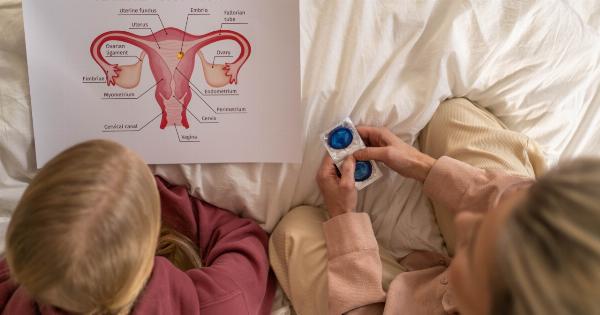Contraception, also known as birth control, is a method or device used to prevent pregnancy. While most contraceptive methods work effectively, some women may find that certain methods are not as effective for them.
In this article, we will discuss why some women may experience contraceptive failure and what options they have.
Why Contraceptive Methods Might Not Work for Some Women
One of the main reasons that contraceptive methods might not work for some women is user error. For example, forgetting to take a birth control pill at the same time every day can result in an unintended pregnancy.
Additionally, some women may not use their chosen contraceptive method correctly, such as not using a condom during every sexual encounter.
Another reason why contraceptive methods might not work for some women is due to medical reasons. For instance, some women may have a medical condition that affects the effectiveness of their chosen contraceptive method.
Women who have frequent digestive issues or who have undergone bariatric surgery may not be able to use oral contraceptives or the contraceptive patch.
Furthermore, some women may not be comfortable with the side effects of certain contraceptive methods, such as weight gain, acne, mood changes, and decreased sex drive.
These side effects may lead to inconsistent use and, ultimately, contraceptive failure.
Types of Contraceptive Methods
There are numerous types of contraceptive methods that women can choose from, and each method has its own level of effectiveness. The following are some of the most common contraceptive methods:.
1. Oral contraceptives
Oral contraceptives, also known as birth control pills, are the most commonly used contraceptive method for women in the United States.
These pills contain a combination of estrogen and progestin hormones that prevent ovulation, and if taken correctly, they are up to 99% effective.
2. Condoms
Condoms are a barrier method of contraception that work by preventing sperm from entering the uterus. They are usually made of latex or polyurethane and are up to 98% effective if used correctly.
3. Intrauterine devices (IUDs)
IUDs are small, T-shaped devices that are inserted into the uterus by a healthcare provider. There are two types of IUDs: hormonal and copper. Hormonal IUDs release progestin into the uterus, while copper IUDs are made of copper and prevent fertilization.
They are both about 99% effective.
4. Implants
Implants are small, flexible rods that are inserted under the skin of the upper arm. They release progestin to prevent ovulation and are up to 99% effective for up to three years.
5. Vaginal ring
The vaginal ring is a small, flexible ring that is inserted into the vagina. It releases estrogen and progestin to prevent ovulation and is up to 99% effective if used correctly.
Options for Women Who Experience Contraceptive Failure
Women who experience contraceptive failure have several options available to them. These include:.
1. Emergency contraception
Emergency contraception, also known as the morning-after pill, can be taken up to 72 hours after unprotected sex to prevent pregnancy. There are two types of emergency contraception: pills and IUD insertion.
The pills contain high doses of hormones that prevent ovulation, while the IUD works by preventing fertilization. Emergency contraception is up to 95% effective.
2. Sterilization
Sterilization is a permanent form of contraception that involves surgery to block or cut the fallopian tubes, preventing the egg from being fertilized.
Sterilization is up to 99% effective and is a good option for women who do not want to have any more children.
3. Natural family planning
Natural family planning involves using fertility awareness methods to track ovulation and avoid intercourse during the fertile period.
This method is up to 76-88% effective, but it requires thorough planning and consistent attention to the menstrual cycle.
4. Switching contraceptive methods
Women who experience contraceptive failure may consider switching to a different contraceptive method that may be more effective or better suited to their needs.
It is important to discuss any potential disqualifying medical conditions, such as depression, with a medical professional when considering a change in birth control methods.
Conclusion
Contraception is an important part of family planning, and women have numerous methods available to them to prevent unintended pregnancy.
However, some contraceptive methods may not be effective for certain women due to user error, medical reasons, or intolerance to side effects. Women who experience contraceptive failure have several options available to them, including emergency contraception, sterilization, natural family planning, and switching to a different contraceptive method.
It is important for women to discuss their contraceptive needs and options with a medical professional to determine the best method for them.



























